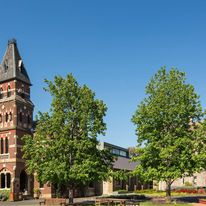Guidance for Fulbright Scholars: Managing Life as an International Student” and “Capitalizing on Fulbright Experience: Opportunities After the Program
Succeeding as a Fulbright Scholar and Beyond: Managing Life Overseas and Capitalizing on Opportunities After Fulbright
For those selected to participate in the Fulbright Program, the experience marks the beginning of an incredible journey of personal, academic, and cultural growth. However, the path from starting life as an international student to leveraging the Fulbright experience for future opportunities can be complex and full of challenges. This guide will walk you through the essentials of navigating life abroad as a Fulbright scholar and maximizing the post-Fulbright benefits that await once your program concludes.
1. Preparing for Life as an International Fulbright Scholar
As an international student, adjusting to life in a new country can be as exhilarating as it is challenging. The Fulbright Program provides an array of support resources, but as a scholar, there are steps you can take to make the most of this experience from day one.
Useful Advice for Adjusting to a New Environmen
Adjusting to a new culture and education system requires planning, patience, and adaptability. Here are some essential tips to help you thrive:
• Plan for Housing and Budgeting: Start by researching housing options and setting a budget that aligns with the stipend provided by Fulbright. In some cases, you may receive assistance from the program in finding housing, but it’s wise to connect with former scholars or locals to identify safe, affordable options. Make sure to consider living expenses, transportation costs, and everyday necessities in your budget.
• Get to Know the Academic Culture: Every country has its own academic expectations, norms, and protocols. The U.S., for instance, tends to have an open, interactive classroom environment, while other countries may have different structures. Familiarize yourself with these dynamics to avoid surprises and be ready to adapt.
• Focus on Health and Wellness: The emotional toll of adjusting to a new country can be significant, so prioritize your mental and physical health. Fulbright typically provides health insurance, but it’s essential to know how to access healthcare services locally. Staying active, eating well, and connecting with other scholars can also support your well-being.
Cultivating a Mindset for Cultural Exchange
As a Fulbright scholar, you’re both a student and a cultural ambassador. Here are some ways to cultivate a cultural exchange mindset:
• Engage in Local Activities: Participate in community events, join clubs, and attend cultural festivals to immerse yourself in the local culture. These experiences will enhance your understanding of the host country and help build connections outside the academic environment.
• Network with Other International Students: Fulbright offers a unique platform to connect with scholars from various countries. Attend Fulbright events, collaborate on projects, and engage with alumni networks. These interactions can enrich your understanding of global perspectives and build friendships that last beyond the program.
• Share Your Own Culture: Part of your role is to introduce your own culture to others. Consider hosting cultural events or giving presentations about your background. This exchange is central to the Fulbright mission and can leave a lasting impression on those you meet.
2. Achieving Academic Excellence and Career Growth as a Fulbright Scholar
The academic component of the Fulbright Program is demanding but immensely rewarding. Here are some strategies to excel academically and prepare for professional growth:
• Leverage Faculty Support and Mentorship: Building relationships with professors can provide valuable guidance, mentorship, and insight into your field of study. Many Fulbright alumni credit their success to the mentorship they received, which often led to future research collaborations, job offers, and other opportunities.
• Seek Out Professional Development Opportunities: Fulbright offers various resources for professional growth, such as seminars, workshops, and networking events. Additionally, many host institutions have career centers that can assist with resume building, interview preparation, and job search strategies. Take advantage of these resources to prepare for life after Fulbright.
• Document Your Achievements and Projects: Keep a record of the projects, presentations, and academic milestones you complete as a Fulbright scholar. This documentation not only helps with future job or academic applications but also allows you to reflect on your progress and contributions.
3. Readying for Opportunities After Fulbright
The end of a Fulbright grant is not the end of its benefits. Many Fulbright alumni find that their experience opens doors to exciting career and academic opportunities.
Career Pathways for Fulbright Alumni
Fulbright alumni go on to thrive in diverse fields, including academia, government, NGOs, business, and more. Here’s how the Fulbright experience can directly impact these career paths:
• Academia and Research: Many Fulbright alumni pursue academic or research careers, using the skills and connections they developed during the program. The experience of studying abroad and conducting independent research can enhance your qualifications, making you a competitive candidate for academic positions or Ph.D. programs.
• International Relations and Diplomacy: The Fulbright Program’s emphasis on cultural exchange aligns well with careers in diplomacy, international relations, and policy-making. Alumni who excel in building cross-cultural relationships often transition into roles at international organizations, government agencies, and NGOs.
• Nonprofit and Social Impact Sectors: The global exposure Fulbright provides is highly relevant for those interested in social impact. Many alumni leverage their experience to work in nonprofits focused on education, healthcare, human rights, or other critical global issues.
• Corporate Sector: For alumni interested in the corporate world, the adaptability, cultural awareness, and problem-solving skills developed during Fulbright make them valuable assets. Many multinational corporations prioritize employees with international experience, especially in roles requiring cultural sensitivity and collaboration.
Networking with the Fulbright Alumni Community
The Fulbright alumni network is one of the program’s most valuable resources, offering lifelong support and networking opportunities. Here’s how you can leverage it for long-term career growth:
• Join Local and International Alumni Chapters: Fulbright alumni chapters are active in cities worldwide, organizing networking events, professional development workshops, and volunteer opportunities. Staying involved in these chapters helps you connect with like-minded professionals and stay informed about alumni-led initiatives.
• Collaborate on Research or Social Projects: Many alumni continue working together on research projects, publications, or social impact initiatives. By collaborating with other alumni, you can create projects that benefit both your community and the global Fulbright network.
• Access to Exclusive Fulbright Resources: As an alumnus, you may have access to exclusive Fulbright resources, including job boards, grants, and scholarships. Fulbright often provides continued funding for alumni projects and professional development, so stay engaged with the network to take advantage of these resources.
4. Tips for Maximizing Post-Fulbright Opportunities
Here are a few actionable steps to ensure you make the most of your Fulbright experience even after the program ends:
• Leverage Your Cultural Competency Skills: Highlight your international experience, cross-cultural communication skills, and adaptability when applying for jobs. Employers value candidates who can bring a global perspective and navigate diverse environments, so showcase these qualities in your resume and interviews.
• Share Your Story and Inspire Others: Many alumni become ambassadors for the Fulbright Program by speaking at conferences, mentoring prospective applicants, or hosting webinars. Sharing your story not only inspires others to apply but also strengthens your connections within the Fulbright community.
• Stay Connected with Faculty Mentors: If you developed strong relationships with faculty members during your Fulbright grant, continue reaching out to them. They can be valuable resources for future recommendations, research collaborations, and academic guidance.
5. The Lifelong Impact of the Fulbright Experience
Participating in the Fulbright Program is a transformative journey, both academically and personally. Many alumni find that the program instills a sense of responsibility to make a positive impact, not only in their professional careers but also in their communities.
Fulbright’s emphasis on cultural diplomacy and mutual understanding has a lasting effect on how scholars view the world and engage with others. Whether alumni return to their home countries or pursue careers abroad, the skills they’ve developed—such as open-mindedness, adaptability, and a commitment to cultural exchange—continue to shape their interactions and aspirations.
Conclusion: From Fulbright Scholar to Global Citizen
Navigating life as a Fulbright scholar is both challenging and rewarding. The experience demands adaptability, resilience, and a proactive approach to cultural exchange. However, those who embrace this journey find that it opens doors to lifelong opportunities for growth, learning, and impact.
Post-Fulbright, the opportunities for leveraging your experience are abundant, from advancing your career to joining a global network of changemakers. Whether you aspire to influence policy, advance in academia, or make a difference through social impact, the Fulbright Program provides a powerful foundation. By embracing this experience fully and staying connected with the alumni network, you can continue to benefit from the Fulbright legacy long after your journey as a scholar has concluded


